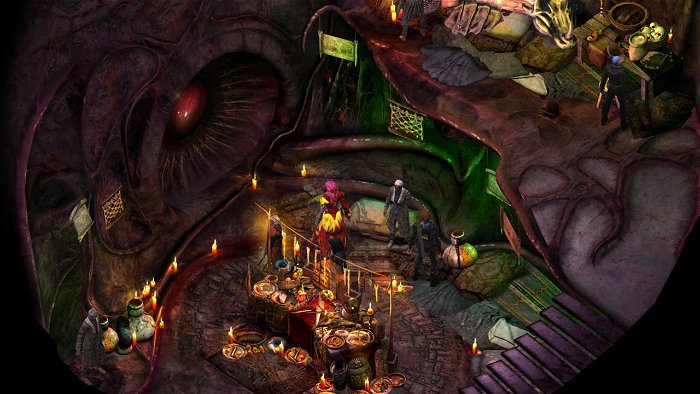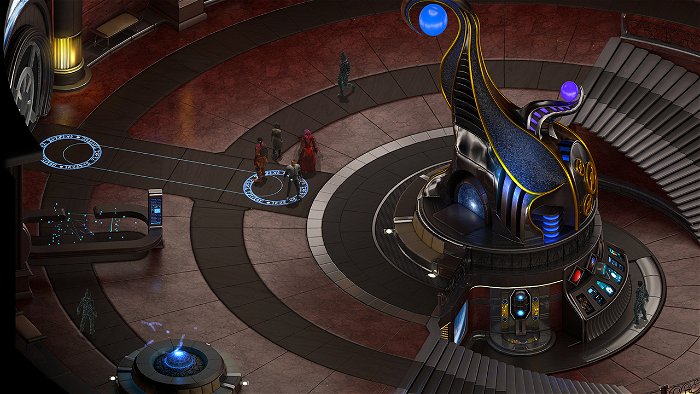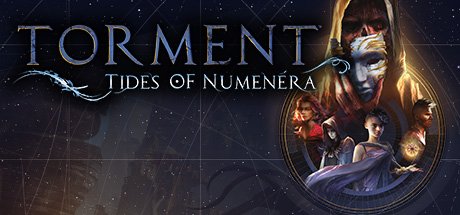It’s been far too long since I’ve played a Role-Playing Game. Don’t get me wrong, I play RPGs all the time, but they all seem to forget what that even means these days. And without getting into a salty “when I was young” rant, allow me to suggest that the distinction between a mere RPG and a fully-fledged Role-Playing Game is that the former offers some form of character progression or customization within a limited framework, while the latter allows the player to decide at the outset a particular persona they wish to play, and the game is flexible and diverse enough to facilitate that. Think Diablo vs D&D if you want extreme examples, and my preference has always been in the latter, as there are no safeguards against my own idiocy and poor life choices.
Torment: Tides of Numenera—as is evidenced by my Game Over before even assuming control of my character—certainly finds its home among the role-playing elite. If you’re looking for a series of red, blue, and green frosted cupcakes, you might want to look elsewhere; but if you’re looking for the mother of all 90’s Black Isle Studios IP revivals, I can’t see it getting much better than this. The character creation alone is a masterwork of elegant storytelling, and to say that it’s just the tip of the narrative iceberg is an understatement of epic proportions. One gets a real sense that the world formed quite naturally around the story that has been told, rather than the other way around; everything has the touch of an artist—of a storyteller. Everything feels placed or described with intent, yet totally organic and natural. And, rather critically for those of you who may be wondering, it also stands perfectly fine on its own if you’ve never played Planescape: Torment, thanks largely to the whole, y’know… not knowing who you are gig. But, for those very same reasons, the game becomes so much more if you have—sort of how Fight Club is somehow better if you’ve already seen it, but is no less better (that’s a thing, shut up) if you’re just watching it for the first time.

A question I’ve heard over the last couple weeks is how Torment stacks up against Pillars of Eternity or Tyranny (or to a lesser degree, Wasteland 2), all known for being revivals of a genre of gaming that, not too long ago, seemed tragically lost to time. Despite the game’s recent Early Access state, I hid behind the relative shelter of the press embargo to buy myself some time to think about that, as it occurred to me that it would be a question that a lot of players would have. My end thoughts resulted in a two-page distinction between the four, but the essence of it all is this: Torment is the purest expression of Infinity Engine RPGs we will ever see in the modern age. Far from just a long-awaited sequel, it feels more like a game dug up in a time capsule, squirrelled away for nearly 20 years along with a copy of the Titanic soundtrack and a piece of Evander Holyfield’s ear.
So little has changed with the formula that it’s almost jarring. I could swear it’s the same artists using the same techniques as the original Planescape, albeit at modern resolutions. Even the first pair of companions the player meets was a surreal throwback to my first moments with Baldur’s Gate 2 as a fifteen-year-old. Reading the dialogue of Aligern, the bull-headed and paranoid half of the duo, I could almost picture a miniature giant space hamster on his shoulder and hear his dialogue in the voice of Jim Cummings. Putting it all to a soundtrack by Mark Morgan (the composer for the original Planescape) is just icing on the cake.
It was all something that I couldn’t quite put my finger on at first, as the world of Torment is so alien—like a Myst game—that it took all of my attention to push through the nogginfogging effects of my recent accursed sinus infection just to retain all of the beautiful lore and bespoke scenery descriptors, but the more I played, the more I realized that Torment wasn’t a game developed to be like those that Brian Fargo was responsible for during the heyday of CRPGs at Black Isle Studios; this is one of those games. These weren’t some enamoured hacks writing a love letter to a dead genre; these were the people who defined that genre, passionately and painstakingly keeping it alive. Sure, certain touches are uniquely modern, such as condensing stats into Might, Speed, and Intellect, which loosely define character aptitude while also serving as consumable pools from which to draw Effort (the game’s resource spent to influence all skill checks and combat alike). It’s a beautifully elegant system that speaks volumes about the game’s emphasis towards role-playing. But apart from that, from the art to the UI that occupies huge chunks of the screen, the branching dialogue to the clickable scenery elements that are there purely to enrich the experience with DM narrated-style explanations of the most inconsequential machinations of the world, it’s the purest expression of classic CRPG bliss I think we’re ever likely to see.

I’d be lying if I said that didn’t cut both ways, of course. There are some things that I (personally, at least) feel have moved on for a reason, such as being expected to create a character without any concept of how certain mechanics work or how well your desired playstyle is tailored to, but I would just as soon argue the merits of the package experience than suggest I would like to see something change. New twists are what Pillars and Tyranny are for; Torment knows what it wants to be and it absolutely refuses to compromise, and for that, I both respect and adore it. It also poses an interesting dilemma as a reviewer in that, barring a couple extremely rare crashes, the only things I can find “wrong” with it are things that it very much intended to do that way.
It was with games just like this, with their rich stories and seemingly endless attention to detail that I first found my love for writing and creating. To say that my time with Torment has been profoundly personal and joyful is an understatement. But ever the cynic, what is truly special about Torment is not what it means to me, or its Kickstarter backers, or to who knows how many more may come to it with love for the genre, it’s that I can finally shut up about how “storytelling in games was better when I was young.” Because what Torment has shown, much like Pillars and Tyranny, is that storytelling and immersive narrative in grand RPGs is still just as good, right here, and right now, and it’s exactly the sort of long-awaited spiritual pseudo-sequel I would expect from a studio named inXile Entertainment.






